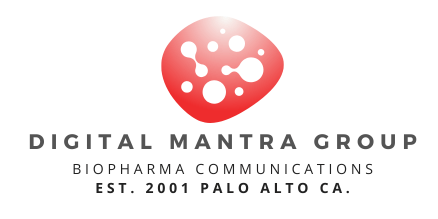Biotech companies face the challenge of not only developing groundbreaking solutions but also communicating their value in a way that resonates with key audiences, including investors, healthcare providers, regulators, and patients. Traditional marketing strategies, often limited in their scope and impact, may not fully capture the complexity and innovation inherent in biotech products. This is where branded content emerges as a powerful tool that allows biotech companies to craft compelling narratives, build trust, and create meaningful connections with their target audiences.
Branded content goes beyond conventional advertising by focusing on storytelling and delivering value through engaging, educational, and emotionally resonant content. It enables companies to communicate the scientific breakthroughs and human impact of their work in ways that deeply connect with people. In the biotechnology industry, where trust, credibility, and scientific integrity are paramount, branded content has the potential to make a significant difference.
What is Branded Content?
Branded content is a marketing strategy where the brand’s message is subtly integrated into content that provides value to its audience—whether it’s through education, entertainment, or inspiration. Unlike traditional advertising, which typically emphasizes a product and aims for immediate conversion, branded content focuses on telling stories that resonate emotionally or intellectually with the audience. It emphasizes creating meaningful connections over hard-sell tactics.
In the context of biotech, branded content can take many forms:
– Documentary-Style Videos: These may showcase the personal stories of patients who have benefited from a biotech treatment or explain the science behind a new innovation in an accessible way.
– Expert Blogs and Thought Leadership: Biotech companies can publish in-depth articles or white papers that dive into emerging trends, cutting-edge technologies, or developments in areas like gene therapy or precision medicine.
– Interactive Infographics or Explainers: These might break down complex scientific processes or illustrate the mechanism of action behind a drug, helping healthcare providers, patients, or investors understand the innovation better.
– Podcasts and Webinars: Engaging conversations with leading experts in the field can provide education and insights while subtly positioning the company as an industry leader.
What sets branded content apart in biotech is its ability to create a deeper narrative around the science, the people behind the innovations, and the ultimate impact on patient lives, making the technical accessible and meaningful.
The Power of Branded Content for Biotech Companies
Biotechnology is a science-heavy field where products are often complex, highly specialized, and sometimes difficult for non-experts to understand. This is compounded by the fact that biotech companies often have long development timelines, meaning they need to build and maintain visibility long before their products reach the market. Branded content, when used effectively, allows biotech companies to address these unique challenges and differentiate themselves in a crowded field. Here’s why branded content is so powerful for biotech companies:
1. Simplifying Complex Science Through Storytelling
Biotechnology is grounded in advanced science, whether it’s gene editing, cell therapy, or molecular diagnostics. While groundbreaking, the complexity of the science often makes it difficult to communicate the value of these innovations to a broader audience. Branded content offers biotech companies a platform to break down intricate scientific concepts into digestible narratives.
By creating stories around the science—whether through video, infographics, or articles—companies can explain their technologies in a way that non-experts can understand. For instance, a video that tells the story of a patient’s life-changing experience with a biotech treatment can be far more effective than a technical explanation of how the therapy works. This storytelling approach humanizes the science, making it more relatable and emotionally engaging.
Moreover, biotech companies can create content that walks viewers through how their innovations address unmet medical needs, showing both the scientific rigor and the human impact behind their work. By blending factual education with real-life applications, branded content not only builds awareness but also trust in the company’s mission and capabilities.
2. Building Trust and Credibility
Trust is paramount in the biotech sector, as companies are not only dealing with scientific research but also with people’s health and lives. Whether the audience is investors, regulators, healthcare professionals, or patients, establishing trust is essential for gaining support and credibility. Branded content allows biotech companies to demonstrate their expertise, transparency, and commitment to ethical practices.
For instance, through thought leadership articles, white papers, and expert interviews, a biotech company can position itself as an authority in its field. By consistently sharing high-quality content that provides value and educates its audience, the company reinforces its credibility and demonstrates that it is a serious player in the industry. In particular, content that delves into regulatory compliance, safety protocols, and ongoing research helps to address concerns around new and experimental therapies, fostering confidence in the company’s operations.
Branded content also gives companies the chance to communicate directly with patients and healthcare providers, offering them insights into ongoing clinical trials, new treatment modalities, and future innovations. This transparency not only enhances credibility but also positions the biotech firm as a leader committed to advancing science for the betterment of human health.
3. Engaging Key Stakeholders Early in Development
Biotech products often have long development cycles, with years or even decades passing between discovery and commercialization. During this time, it’s critical for companies to maintain visibility and engagement with key stakeholders such as investors, healthcare professionals, and patients. Branded content allows biotech companies to engage these groups early and keep them informed throughout the development process.
For investors, branded content can provide regular updates on progress, scientific milestones, and breakthroughs, keeping them excited about the company’s long-term potential. Instead of waiting until a product reaches late-stage clinical trials or the market, companies can use branded content to cultivate interest and maintain momentum through each stage of development.
For healthcare professionals, branded content can offer educational materials about emerging therapies and how they could impact clinical practice. This not only helps build relationships with the medical community but also ensures that there’s a base of informed, supportive practitioners ready to adopt new technologies once they’re available.
4. Personalizing the Brand Experience
In biotechnology, the focus is often on the science and the products, but branded content gives companies a chance to showcase the people behind the innovations. By highlighting the personal stories of the scientists, researchers, and executives driving the company forward, branded content adds a human touch to what can sometimes feel like an impersonal field.
Biotech companies can also personalize their content to resonate with the specific needs of their audience. For example, a company developing cancer treatments could create content that speaks directly to oncology specialists or patient advocacy groups. By aligning content with the specific interests and needs of their audience, companies can foster deeper connections and create content that feels relevant and tailored.
This approach is particularly effective in patient-facing content. When biotech companies share patient success stories or highlight the impact of their therapies, they help potential patients and families see the real-world benefits of their work. These stories humanize the company and make its innovations more relatable, fostering emotional engagement and brand loyalty.
5. Driving Differentiation in a Competitive Market
The biotech sector is highly competitive, with many companies vying for attention from the same stakeholders—whether it’s investors, regulatory agencies, or healthcare providers. Branded content helps biotech companies stand out by offering more than just technical data or clinical results. By crafting narratives around their unique approaches, company culture, or patient stories, biotech firms can differentiate themselves in the market.
Through branded content, companies can communicate their broader mission, values, and vision for the future, positioning themselves not just as developers of products but as innovators working to transform healthcare. This narrative can resonate deeply with investors looking to back mission-driven companies, as well as healthcare providers who want to be part of the next wave of medical innovation.
6. Enhancing Digital Presence and Engagement
In today’s digital-first world, branded content is a powerful way for biotech companies to increase their online presence and engagement. By producing a steady stream of high-quality content—whether in the form of blogs, videos, social media posts, or podcasts—companies can build their brand identity and attract a larger audience.
Biotech companies can leverage digital platforms to distribute branded content widely, reaching global audiences and engaging with niche communities. For instance, educational blog posts on LinkedIn or in-depth explainer videos on YouTube can attract healthcare professionals, investors, and patients looking for reliable information. Furthermore, through social media engagement and online community-building, biotech companies can foster direct interactions and build loyal, engaged followings.
Conclusion
Branded content is an invaluable tool for biotech companies in a world where trust, credibility, and communication are critical to success. By creating engaging, educational, and emotionally resonant content, biotech companies can simplify complex science, build trust with key stakeholders, engage audiences early in product development, and differentiate themselves in a competitive landscape.
As biotechnology continues to push the boundaries of healthcare, branded content will play an increasingly important role in helping companies connect with the people who matter most—patients, healthcare professionals, investors, and regulators—making branded content a powerful strategy for long-term success in the biotech industry.



